Don't wanna be here? Send us removal request.
Text
I definitely agree that there was a great deal of ambiguity with Lain's design and characterization. The kinda odd stare she always had and he skin tone gave off a zombie sort of vibe for me. I also think virtual platforms definitely give people (or programs or whatever Lain is) more confidence to be their true selves, thus the blurring of what is truly "real".
Post for 4/24
I’m really glad that we got to watch Serial Experiments Lain for this semester’s last class. It was a cool show! The anime’s art style is unique and I think the bleak backgrounds really added to the atmosphere. It’s very minimalist, but it works wonders for this show.
I was sometimes confused by random, short sequences that the plot didn’t really explain. For example, there was a guy who was chased around and murdered (?) by a little girl, but I don’t think the show ever clarified who either of them were. Then, some guy killed (?) that girl in a game called Phantoma in the Wired using his handgun (no pun intended). Also, where is Mika? Can someone check up on her?
However, the moments when I could comprehend the show were good. I wonder if the version of Lain that is confident is a reference to how the shield of anonymity makes people lose their expressional filter when they’re talking on the internet. Also, it was kind of annoying to see Lain’s family basically neglect her well-being, except for her father to some extent. I did end up watching the very last episode of the anime, too, and it was nice to see her father talking to her in limbo.
My favorite episode was the last one we were assigned, where Arisu reminds Lain that she is human and stops Eiri’s plan from coming to fruition. It was wholesome to see Lain trying to comfort Arisu and vice versa, despite Lain letting her see man-made horrors beyond her comprehension, going so far as to erase herself from everyone’s memories to stop their suffering. It felt like Lain was more human than she ever was during those moments. Actually, I think they intentionally made it ambiguous whether Lain is a human, homunculus, program, or a God. In any case, it was awesome to see her putting Eiri, a false God, in his place. By all means, own that fraud!

Image of Lain from https://pen-online.com/culture/god-is-in-the-wired-serial-experiments-lain/.
5 notes
·
View notes
Text
4/24 Serial Experiments Lain (1,4,7,12)
This was definitely different from what I was expecting, especially with the opening episode showing the suicide of someone in connected to the main character.
Themes of blurring the line between humanity and technology are really common as a whole are decently common and often are some version of what these four episodes showed-this idea that the human body is inferior or weak and one must be enlightened of spared by giving it up in some way.
In regard to the whole blurring of the real world and the Wired it's kind of interesting to think about what reality truly is. Growing up in this tech savvy generation where 8 year olds have a nicer iPhone than I do, parents pacify children with tablets, and people hide behind screen names I think there's definitely a case to be made that people are more truly themselves on line. Be it because they feel freer that way or because they think they can get away with more, real in person interactions have definitely warped even in just the last 5 years or so (thanks COVID) but even then they were already changing before that.
Overall the art style of this anime felt very Sunday morning comic strip to me and beyond the blurring of reality I kinda struggled to understand the deeper themes of what was going on here. I also spent like the first 3 episodes trying to decide if Lain was a girl or a boy but maybe that was an intentional choice by the creators to make her more ambiguous. I'm hoping hearing so other people's opinions in class will give me some more clarity.
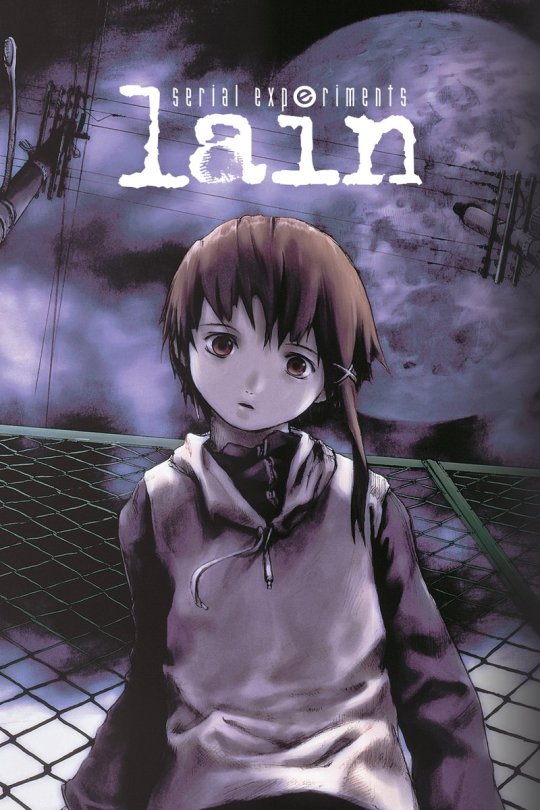
3 notes
·
View notes
Text
I've never seen Inception but it sounds like Paprika on steroids so I would definitely be in trouble. I really struggled with the analyzable aspects of this other than the obvious blurring between reality/dreams and I was pretty weirded out by the Osanai scene too. The subtle romantic/sexual bits were super odd to me as well, especially with the ongoing parade of like circus toys and dolls...
Post for 4/22
Paprika felt like a fever dream to watch, no pun intended. I can definitely see how the movie inspired Inception. I did watch Inception a while back and I feel like it was a bit more complex than Paprika since there were multiple layers of shared dreams, while in Paprika, there’s pretty much one big dream and it can intersect between multiple people, but I don’t think it’s meant to be multilayered (dream within a dream), to my understanding. Paprika’s surrealism and altered realities also reminded me of Mima’s delusions in Perfect Blue. Anyway, the animation quality and surrealism were really cool but I’m not sure if I got anything analyzable out of the movie, to be honest. I’m open to hearing what themes other people got out of it, though.
I guess one thing that was slightly confusing was whether Paprika and Dr. Chiba were actually the same person. Throughout the movie, it seemed like Paprika was a persona that Dr. Chiba imagined herself as when she dreamed. However, at the very end, within the big dream, it seemed like Paprika was able to separate herself from Dr. Chiba and became an independent entity with her own thoughts. And then Paprika, naturally, as one normally does, ate the bald chairman and saved the world from the big dream. I’m betting that someone during class is going to propose the theory that Paprika is a reincarnation of Jesus who died to save everyone.
It was kind of weird how multiple men wanted to be romantically involved with Paprika at one point or another. Dr. Konakawa wanted to kiss Paprika in his dream after his performance on stage, which was actually Shima in real life? Then, Osanai… I don’t even know what he was doing to her. That scene was wild.
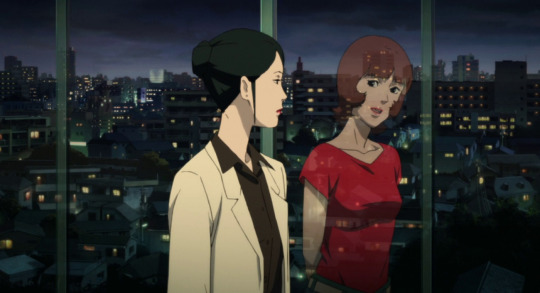
Image of Paprika from https://anime-ashoka.medium.com/paprika-or-how-i-learned-to-stop-worrying-and-reject-gender-binaries-f981ff915c55.
2 notes
·
View notes
Text
4/22 Paprika
Oh boy and I though Perfect Blue was confusing...
I do wanna applaud the director for doing a great job blurring the point between dream and reality to the extent he did because a whole driving plot point is being in other people's dreams BUT maybe I just lack the aptitude for deeper psychological themes because I was so incredibly lost.
With Perfect Blue you do get the same sort of dazed questioning what's going on feeling but it's not so jarring to where you struggle to understand like I felt this movie was.
If you subscribe to the Freudian ideology where dreams are repressed wishes that reveal more about a person, the idea of a device being developed that allows you to see someone else's dreams as a way of helping them could be groundbreaking however as was shown in this I feel the kind of invasiveness of this could only lead to bigger consequences in the future.
I didn't really like the way Dr. Chiba was fat shaming Tokita and also wasn't a huge fan of how she kept blaming him for EVERYTHING. Furthermore, I found the scene where Paprika is like ripped open to reveal Dr. Chiba on the inside- was really oddly sexual and uncomfy. In a lot of the odd dream sequences there were dolls or other child-like items so having these random groping scenes or someone getting shot repeatedly was a weird juxtaposition. As for like deeper analyzable themes I'm struggling a bit on that so I'm looking forward to hearing others thoughts in class.
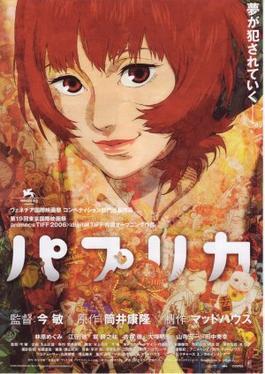
4 notes
·
View notes
Text
I can definitely see the treatment of the queen as both a statement about the patriarchy as well as institutions of power in general as well. Personally Squealer kinda bothered me a bit as a character but I did like that he ended up being sort of a bridge to the truth for Saki and Satoru. The whole situation with the monster rats being humans without PK powers being genetically modified and made out. to be the enemy I also felt was good commentary on the tendency for society to vilify any perceived "other".
Shin Sekai Yori (15, 21, 24, 25)
In episode 15, we can see Squealer and his species worry about becoming extinct and therefore try to exploit the queen. They knew they were smart and believed that they deserve some power, yet the queen had so much and ruled over them unfavorably. I feel like this represents governments/powers throughout history: the government exploits or neglects its citizens and, therefore, the citizens retaliate, protest, etc. at the power's expense. The citizens come together to build power and make changes to the government/power. Squealer and his species worked together, forming a union, and tried to negotiate, yet they ended up trapping her and still exploit her for the benefit of the colony. This is similar to when the newly formed government reduces the power of the leader, making them instead a public figure (kind of like the president or prime minister). Then we see things like war prisoners, enslavement, imperialism/colonialism in episode 21, which we see in history during an overthrow of rule as well. In the last episode, the Squealer talks about how change is necessary, which I do think is true, but that the sacrifices would have been worth it if they had won, which I disagree with: in the end, people lost their lives. War and violence are the problem (I can see why Squealer thought they needed to resort to it, especially when they tried to propose equal rights, but to continually hurt the Queen and other species? That does not seem very moral). In the end, it is quite a morally grey area when you consider all things, though.
I think there is also commentary on patriarchy. The Robber Fly colony thinks that the queen's only job should be childbirth, while the "smart" ones should have the power. The queens are stuck inside (domestic duties, trapped in the house) while the men (I think) are free to roam and rule. This also reminds me of Japanese history. There were queens with power an extremely long time ago in Japan, like Queen Himiko, that people at first accepted as ruler; however, men soon believed they deserved the power, labeling women that ruled as evil (people believed that Queen Himiko had magical powers that she used for evil purposes as well), resulting in men ruling Japan. Then, they use violence, blaming the Goat Moths for shooting an arrow when they used violence first. This represents the common opinion that men often resort to violence more compared to women, like starting something as small as fights or as big as war.
Now, something that I find quite disturbing is how kids ended up having a child?! Like I think they are 14? Definitely an interesting plot by the storywriter - I wonder what the idea was behind that?
I think that overall, this anime is a commentary on power, whether its a ruler, and man and woman, magical powers, or the responsibility that comes with it.
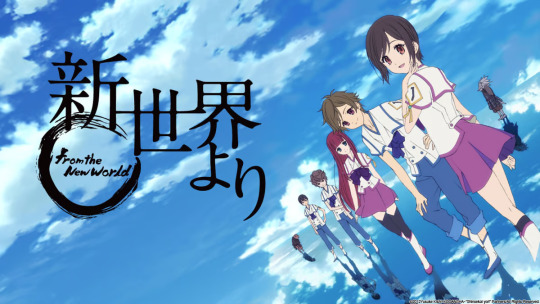
8 notes
·
View notes
Text
Shin Sekai Yori (15,21,24,25)
This second round of episodes definitely went a lot smoother after I stopped trying to understand who specific characters were and focused more on the overall commentary the show was trying to make though of course I can't ignore the major bombshells that were dropped.
First of all lobotomizing the Monster Rat Queen and forcing her to just have more and more babies was absolutely horrendous. It felt very Handmaid's Tale meets The Giver and overall still feel very disturbed by that but there is some weight in the comment the tour guide rat made about how they all come from her but she doesn't own them. This may have been hinting at how the powers in place love to act like people are indebted to them simply becuase the powers allowed them to exist. However like whatever American revolutionary said "power is derived from the people" so I guess the Queen only had as much power as the monster rats decided they were willing to give her which unfortunately stops at reproducing.
On a similar note I wasn't all that shocked by it being revealed the monster rats were actually truly humans because it seemed kinda obvious for me after the whole interaction with the false minishiro unicorn thing in episode 4. However I did find it ironic that Saki was criticizing the way the monster rats were treating the Queen because the barbaricness that was being chagrined at wasn't all the different from the weird culling at the academy and power manipulation done by the adults behind the scenes.
Overall I think a lot of great commentary was made in the anime on humanity and the ways in power is exercised and exploited. I also kinda got invested after the Messiah was explained to be Maria and Mamoru's child so I'm kinda curious about watching some of the in between episodes to get some more context.

3 notes
·
View notes
Text
Oh thank goodness I'm not the only one struggling here! I watched this with 100% attention at normal speed and even rewatched the lore episode and I'm still so lost! What exactly is the Minoshiro? What are all these kids training for at this academy? What is with the monster rats? I have so many questions and am looking for clarification too.
Shin Sekai Yori Blog Post 4/17
Not gonna lie, I didn’t really enjoy Shin Sekai Yori. I don’t think it was a bad anime, I just think I personally don’t have the brain capacity for it. So much information is thrown at you and I made the mistake of trying to fold laundry and watch the show at the same time, LOL. From what I gathered, we follow the young Saki Watanabe as she finally gains her powers and moves on to an academy meant for people who possess psychic abilities. She joins group 1, with the members being Reiko, Satoru, Maria, Mamoru, and Shun.
I think the episode that stuck out most to me was episode 4. They encounter a thing called the Minoshiro, which reveals the answer to any question they ask. It ends up being a fake Minoshiro, in which a guy comes to destroy for them. However, they learn a lot of useful and saddening information from them. They learn about society from the Dark Ages and their own society, and the creation of Ogres and Karmic beings. They also learn information on the population of those with PK, such as only 0.3% of the population obtain PK and there were movements to eradicate them, some even leading to war. It made me feel sorry for these kids, they are absorbing so much information at such a young age, and given a lot of responsibility for holding this type of power. A lot is to be said about the development and destruction of certain societies and eras. It went from embracing PK powers to suppressing anyone who has them, leading to what they called the Dark Ages. Then it progresses back into acceptance or practice of PK powers into the present time in this anime. Episode 4 contained a big chunk of the history of this universe, and I’m still trying to wrap my head around it. I feel like this show tried to implement many themes but I could not really catch myself developing any of my own thoughts. I think our next round of episodes will help me get a clearer idea of the message of this anime, but right now I feel like my mind is convoluted with the huge information dumps, especially in episode 4. One thing I did notice is the question of what it means to be human and to be treated as human. This goes for the rat people, Queerats, and all other beings in this universe. Even the existence as humans obtaining PK is called into question. So what makes one human, and what is the ethics of treating one as one?
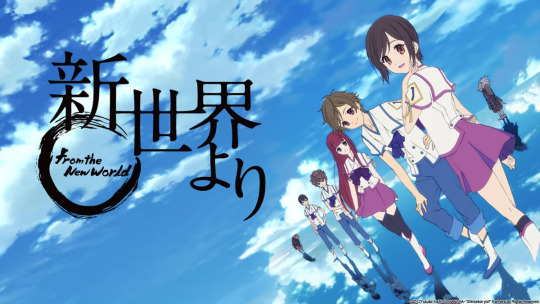
5 notes
·
View notes
Text
4/17 Shin Sekai Yori (1,2,4,12)
I'm really hoping I'm not the only person who feels very lost here...
After watching episode 12 in which Saki is explicitly told their memories were wiped I'm wondering if the like total lack of context and constant wondering about what the heck was going on was meant to reflect how the characters all felt but I found it really confusing, even after episode 4's info dump.
These children with telekenetic powers are sent to this boarding school of sorts 1,000 years in the future but I don't really understand why they're there or who the villain is or if there even is one. There seems to have been some sort of Dark Age event that happened forcing the acceleration of these abilities to combat the evil forces of Ogres and Karmic beings and that whatever institutions are in place have been selectively shaping reality ever since?
It is definitely clear that something shady is going down with the way students are disappearing and how shocked everyone was after meeting the unicorn thing that told them all the history but the whole Buddhist shrine religious cult component also has me extremely confused as well so I'll be honest and admit I by and large have no idea what's happening here. Oh also what exactly is going on with the monster rats that are like slaves used as landscapers at this academy but then they're also these like renegade warriors in episode 4?
I feel like there may be some social commentary of like the invented realities institutions instill within us and how easily perceptions are warped but I'm really hoping for some clarification in class!

2 notes
·
View notes
Text
I similarly was caught a bit of guard with the ending and have loads of unanswered questions but I do like how the idea of what being a productive member of society means is being challenged with the NEETs. It's clear in this anime that they seem to be grouped in with hikikomori as mooches who just drain society so I liked they had their moment of the roof to show they're capable in their own ways.
Post for 4/15
The last episode of Eden of the East felt like it was something straight out of an action movie. The part where all of the NEETs worked together to plan out how to intercept the incoming missiles within seconds is like a visualization of people on the internet using Reddit to track down a piece of lost media, or something along those lines. In general, the appearance of the naked, angry NEETs were really funny to see. Something about the imagery of 20,000 of them simultaneously yelling and jumping out of shipping containers was so surreal. The scene where they immediately dispersed to the sides of the room when women were passing through, like vampires to garlic, was also really funny. “Don’t worry, they’re probably only interested in 2D” completely caught me off guard, too.
I don’t think I’m the only one who didn’t expect the ending to be so abrupt. I thought that I had watched the wrong episode at first but it really turned out to be the last one. I searched it up and apparently there’s a couple of sequel movies that follow the anime series. I kind of wish we were assigned to watch those for class because I feel like there are still a lot of loose ends that remain. What does Takizawa intend to do as the King of Japan? Who is the real Supporter? Is Ato still out there? There’s still so much to be explained.
Something that relates to our previous in-class discussions was Itazu’s belief that conspiracies emerge when a nation is weak. When there isn’t a physical higher power that enacts power onto the common people, those people start to make things up to fill in that gap, such as religion or conspiracies. Perhaps this is why Takizawa wants to become the King of Japan so that people aren’t misled by falsehoods any longer?
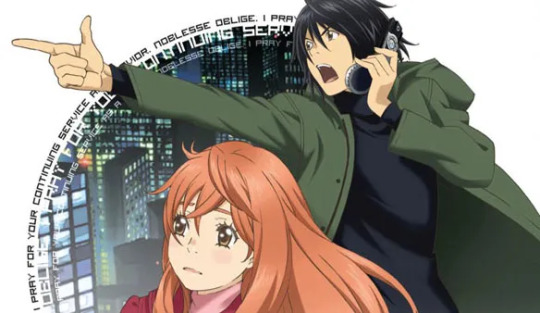
Image from https://www.indiewire.com/criticism/culture/anime-review-eden-of-the-east-the-premium-edition-122333/.
4 notes
·
View notes
Text
Eden of the East (6,9,10,11)
I think this anime has been the one we've watched the most of this semester given that it's only 11 episodes and we watched 8 of them but I still feel a bit lost with how this ended.
In this second set of episodes a lot of things were clarified. Akira chose to have his memory wiped after being betrayed, Mr. Outside is apparently dead, the NEETS were sent to hide in Dubai after helping Akira evacuate civilians before the first missile strike, and as I thought in the first set of episodes the magic cellphone crew was created in response to dissatisfaction with the institutions in place.
Despite all of that I still feel pretty confused with Number 1 and Yuki's plan to save Japan by revamping it to how it was in the post war. How does "downsizing to help Japan regain global competitiveness"? This anime was made in 2009 I believe but it think Japan's declining population was still a concern even back then. The whole idea of "getting rid of idlers and the gerentocracy who keep such a tight hold on their vested rights" seems simultaneously valid yet hypocritical because are Yuki and Number 1 not culling people for their own vested rights. Further the NEETS gathering on the roof of the mall Akira bought and collaborating to find a way to stop the missiles directly disproves this notion of these people being useless.
Just because a generation doesn't confirm to a societal expectation. it doesn't mean they're inherently worthless. This is definitely a very extremist point of view. I wish there was a second season to clarify a lot of my own personal unanswered questions but overall I felt this to be a very worthwhile watch.
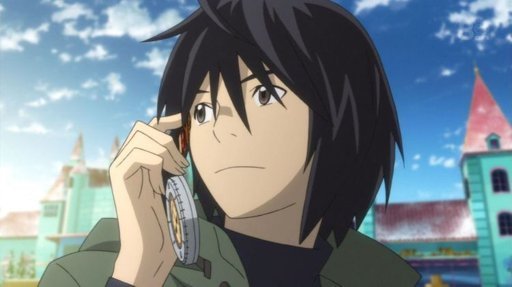
2 notes
·
View notes
Text
I also was thankful the rules were explained upfront and felt that it wasn't entirely realistic starting from the moment the government just conveniently gives Akira a plane ticket to come back to Japan with Saki- a man she met maybe an hour ago. The overall kind of lawless atmosphere and system with the 12 saviors itself might be a commentary on how the government isn't taking accountability for "saving" Japan (so random civilians are being selected to do it).
Post for 4/12
Eden of the East was an interesting watch. It was kind of bizarre to hear people speaking non-broken English in anime and even more bizarre that the Americans understood Japanese with no issue (but weirdly wholesome). I’m actually glad that they laid out the rules of the game played by the Selecao in one of the first episodes because it probably would’ve taken me a while to figure it out had they not explained it in a straightforward way. For some reason, I can’t take this anime too seriously because it feels a bit unrealistic. Morimi just trusts a stranger who flashed her, the police view their jobs as a joke, people aren’t taking any big measures to investigate or stop the Selecao, and the Selecao are so far above the law in every way possible with no meaningful backlash or regulation.
Regarding “Work Culture” by Mouer, it was disappointing yet not surprising to learn that postwar conservatives dismissed leftist activists, who demanded a raise in minimum wage and guaranteed human rights, as foreign individualists who did not belong in a collectivist Japan. Honestly, that is really one of the weakest excuses that can be thought of, and what makes it crazier is that the conservatives said this AFTER the war and AFTER everyone realized the dangers that collective, blind faith in their government’s right-wing propaganda could bring. I don’t know how anyone would actually believe them, especially in regards to something as important as giving people decent lives. It’s clear that their motive was to save money on both distributing reasonable salaries and implementing safety guidelines/enforcement, which are notoriously expensive to implement in many cases. What exactly was their argument? “Because we’re a group, you must be honored to earn less money (and effectively save us money but ignore that part) and be prepared to risk your life at all times!” Who would fall for this, genuinely?
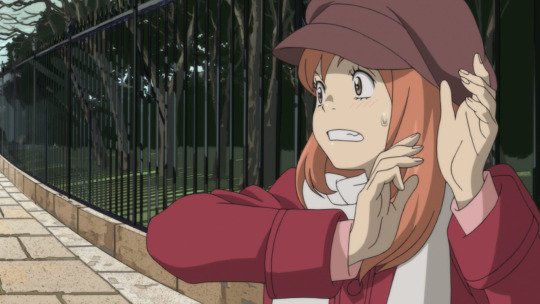
Image of Morimi from https://www.amazon.co.uk/Eden-East-Season-1/dp/B0CH38SYBW.
8 notes
·
View notes
Text
Eden of the East (1,3,5,7)
So far this anime has been a very interesting watch and even before Akira himself said it, I was getting major Jason Borne vibes with the whole "main character wakes up and has now idea who he is and has to run away from people trying to catch him" thing. I also found it so odd in episode 1 when Akira or Saki would speak Japanese to someone and they'd reply in English. I guess I like the authenticity of American in DC speaking English but realistically almost no random DC bystander would actually be able to understand Japanese just thrown a them.
The idea of Mr. Outside choosing 12 people, designating them as these "saviors" and giving them each 10 billion yen to save Japan feels very culty to me. It also seems pretty clear to me that there isn't one specific outcome Mr. Outside is looking for. So far we've only been told explicitly what the doctor did to try to improve Japan before he died. Number 11 has been briefly shown with little context and from these episodes viewers can ascertain something along the lines of Akira collected a bunch of NEETs and sent them somewhere I guess for a better life? Further all these stipulations about needing to use the money without taking too long to use it but when you do use it all the supporter kills you is confusing enough to me and I have my memory intact.
I wonder if the larger commentary this anime is trying to make is how a lot of Japan's issues are going unaddressed. NEETs, oppressive work culture, generational conflicts, those have all been addressed in someway so far. Number 11 seems a bit morally questionable but I'm curious to learn her approach to saving Japan in the next set of episodes. Also mini moment of silence for poor Saki who just wanted to make a wish in the white house fountain and got dragged into all of this.
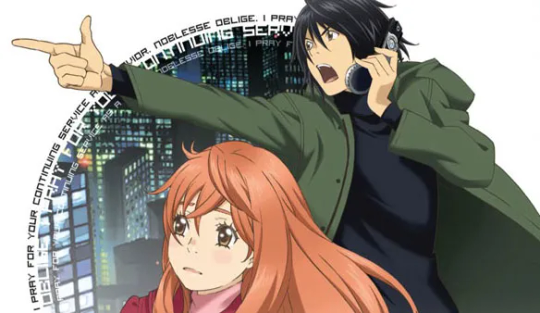
1 note
·
View note
Text
I was also a bit dissatisfied as well with how this anime turned out. It was trying so hard to give a neutral portrayal by not committing to being anti war or pro war that I ending up getting a sort of head ache just wanting them to pick a side already and the resolution to be "sike we're gonna invent a new japan" felt like reading a good book and getting to the last page just for it to be like "....and it was all a dream". If history had been rewritten and Japan won the war it would have been a much more effective commentary in my opinion.
Post for 4/10
I’m kind of confused and a little disappointed after watching the new episodes of Zipang. It seems that the Mirai crew of Japanese soldiers from the 21st century initially did not intend to alter the real timeline. However, as time went on and as they came face to face with opposition, it seems like they ended up destroying quite a few American ships. More importantly, I thought that this anime would make a completely pacifist commentary on the war at first from viewing the first few episodes, as it originally seemed like Kusaka’s goal was nothing more than to help the Mirai crew achieve peace rather than to embrace the nationalist mindset of the past. While Kusaka did help achieve peace for Japan, the way that they did it was… interesting. Kusaka wanted a modified Japan that wasn’t like “old” or “new” Japan, but rather something in the middle (Zipang) that did not thoughtlessly go to war and did not surrender unconditionally or shamefully, thus necessitating the maintenance of an army. This approach was not quite what I expected at all and it appeals to Japanese conservatives in the sense that it imagines a version of Japan that still retains a military standing even after the war. In other words, Zipang does not imagine a Japan that dominated the war but it does still imagine a Japan that avoids nuclear disaster and preserves its stature and military might, of course, all without taking accountability for their actions. If my interpretation is correct, then I am disappointed in how it turned out. I wanted to like Kusaka because his story reminded me of that of Captain America, although I guess in reverse. Plus, his outfit was really cool. Anyway, I wish that this anime could have headed in a different direction.
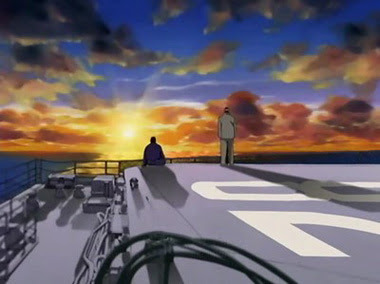
Image from http://anime.com/archive/Zipang/.
6 notes
·
View notes
Text
4/10 Zipang (13, 17, 21, 25)
Even after watching this second round of episodes I can't decide if this anime is pro or anti-war. Especially in episode 25 when the general who comes on behalf of the people he commands. He's telling the mirai crew member that no matter what Japan can't win this war because history has seen the fall of countries that have had victories in war while the losers have always had some sort of revival a few years later. I find this confusing because he doesn't want the mirai crew from the future to get involved but then at the same time he's saying the war is needed for Japan's future.
Obviously it makes sense that Kusaka is trying to turn the war effort in Japan's favor so he previously stood in contrast to the mirai crew but now this general seems to also oppose Kusaka within his own timeline. Also though we see in these set of episodes Kusaka giving up his military sword so he seems less pro-war than he previously was. Yet in episode 13 when Kusaka sneaks into the smaller plane to make contact with the mirai crew the comment is made by them when asked if they support America's side that the blood of all people is the same according to the mirai. This yet again seemingly suggests that there is no right or wrong nor bad guys, just war.
Overall the tone I was getting from these four episodes was echoing a lot of similar rhetoric to what we've read in the past about how there's a common thing for events in Japanese history to be treated as unavoidable or meant to happen. Which often is used as a bit of an excuse for actions on the America side or a lack of accepting a loss on the Japanese side. Though I haven't seen the last episode obviously, I get the impression that the timeline is gonna be reset and history will resume its course by the end.

3 notes
·
View notes
Text
I totally agree that it was interesting to see a portrayal of the war from the soldier's POV instead of the civilians'. I don't remember his name but one character kept bringing up how they were soldiers but they didn't truly know what that meant, especially after one of their own died in the front of the 2 person plane. I wonder if many soldiers also felt blindsided or unprepared like the depictions in Barefoot Gen or Grave of the Fireflies.
5/8 Blog
This week we start off by watching episodes 1,3,6, and 7 of the anime series “Zipang” by Kazuhiro Furuhashi. I thought this anime was interesting and blended together themes like history, drama, and moral dilemmas into a captivating narrative. The series is set during World War II and follows the crew of the modern Japanese Maritime Self-Defense Force destroyer, the Mirai. During a routine naval exercise, the Mirai is mysteriously transported back in time to the Battle of Midway in 1942. Faced with the ethical dilemma of intervening in a war that they know the outcome of, the crew grapples with their duty as modern Japanese citizens and the consequences of altering history. One of the most compelling aspects of "Zipang" is its exploration of moral ambiguity. As the crew navigates the complexities of their situation, they are forced to confront the consequences of their actions. Should they intervene and potentially change the course of history, or should they adhere to a strict non-intervention policy? These questions resonate deeply with viewers, prompting them to reflect on the ethical implications of altering the past. For example, In Episode 3, the crew's moral dilemma becomes palpable when Kadomatsu saves an Imperial Japanese Naval officer from a sinking seaplane. This action sparks a divide among the crew, as they grapple with the realization that their intervention may have changed the course of history. Moreover, "Zipang" excels in its portrayal of historical accuracy. The anime was produced in collaboration with the Japan Maritime Self-Defense Force which (JMSDF) making it more authentic and accurate. Director Kazuhiro Furuhashi pays attention to detail, ensuring that the events depicted in the anime remain faithful to real-world history. From the depiction of iconic battleships like the Yamato and Nagato-class battleship to the portrayal of historical figures, every aspect of the show is authentic, adding an extra layer of depth to the story. This anime series was interesting because I feel like we haven’t seen an anime that specifically focused on soldiers during World War II. We watched Barefoot Gen and Grave of Fireflies but those focused more on civilians during the war rather than soldiers.

1 note
·
View note
Text
4/8 Zipang (1,3,6,7)
MASSIVE DISCLAIMER THAT HISTORY IS ROUGH FOR ME SO I MIGHT BE TOTALLY WRONG but for the most part I was pretty impressed with the historical accuracy of this anime.
Time travel and the mandella effect are not rare themes in media but this particularly portrayal was really compelling to me for some reason. Obviously hindsight is 2020. Answers become so clear when you already know the outcome but in this anime we can see that Kusaka uses his new found knowledge not for the better.
When the naval officers on the ship Mirai (side tangent that I'm curious about the naming of the ship because mirai 未来 means distant future so I wonder if that was intentional since its from 60 years ahead in time) rescue the Lieutenant from the sinking sea plane obviously it was done with good intentions but quickly they start to realize that it might not have been so good after all.
Over the course of these few episodes the point is made a couple times that 1942 Japanese are not the same as current Japanese and that guns and fighting isn't a long term solution to peace. This in tandem with the obvious juxtaposition of pro-nationalist Lieutenant Kusaka and the Mirai crew is a pretty obvious commentary on Neo-Nationalism and the war in general.
Especially when it comes to big historical events the whole concept of turning back time is often a double edged sword. It easy to wish that you could go back to before you cut your hair or before you spilled coffee on your favorite white jeans but from what I've seen in media portrayals is almost always that changing things can lead to a worser evil emerging. I'm curious if time ever gets reset in this anime and if not what the outcome of it all was.
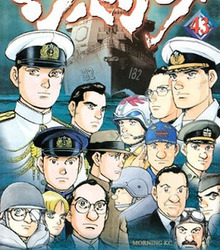
1 note
·
View note
Text
I also was pretty curious about the whole "conspiracy" thing but I think it's kinda just this scapegoat mentality that Sato and Hitomi use to assign blame for their life circumstances. I don't know exactly what happened the day Sato got so overwhelmed and shut himself in but the side tangent story he tells about the last person on Earth being put into a simulation by aliens is the silly story he believes to cope with whatever happened that day. I.e it's not his fault such and such event occurred because the aliens wanted to keep him alive as a shut in to study.
Post for 4/5
I actually really enjoyed watching Welcome to the NHK and might watch more of it this summer. The comedy of this show landed for me, though I will agree that a lot of it is pretty distasteful and fan-service heavy. It’s not for everyone, especially if you don’t feel a connection with the characters. Speaking of which, while I mostly pitied the hikikomori characters such as Satou and Yamazaki, I did find some aspects of their lives to be somewhat relatable, such as occasionally having intrusive paranoia or comparing the quality of my life with that of others (minus the degeneracy, though). Also, in my opinion, while the show definitely contains themes of mental struggles, it never takes itself too seriously. Case in point: they made the scene of a (prevented) group suicide really funny.
Something that resonated with me in particular was when Satou questioned whether creating and releasing a digital game counts toward escaping his life as a hikikomori. As a Computer Science major who has an interest in game development, I have impostor syndrome as well, where I sometimes doubt whether my abilities are up to snuff or whether I’m doing any “real work” that matters at all to anyone. It’s easy to compare your routine to that of others, especially when you’re doing things digitally and don’t have anything that can be physically presented. I think a lot of people nowadays go through that to some extent, though.
I’m disappointed that we didn’t get to actually learn about the conspiracy that Satou and Hitomi brought up, unless I happened to miss something. They kind of just mention it at different times to justify their actions. It would be nice to receive more lore regarding the NHK and their motives.

Image of Satou from https://nflstreet.medium.com/review-welcome-to-the-nhk-3dd9ba8e9f4.
6 notes
·
View notes